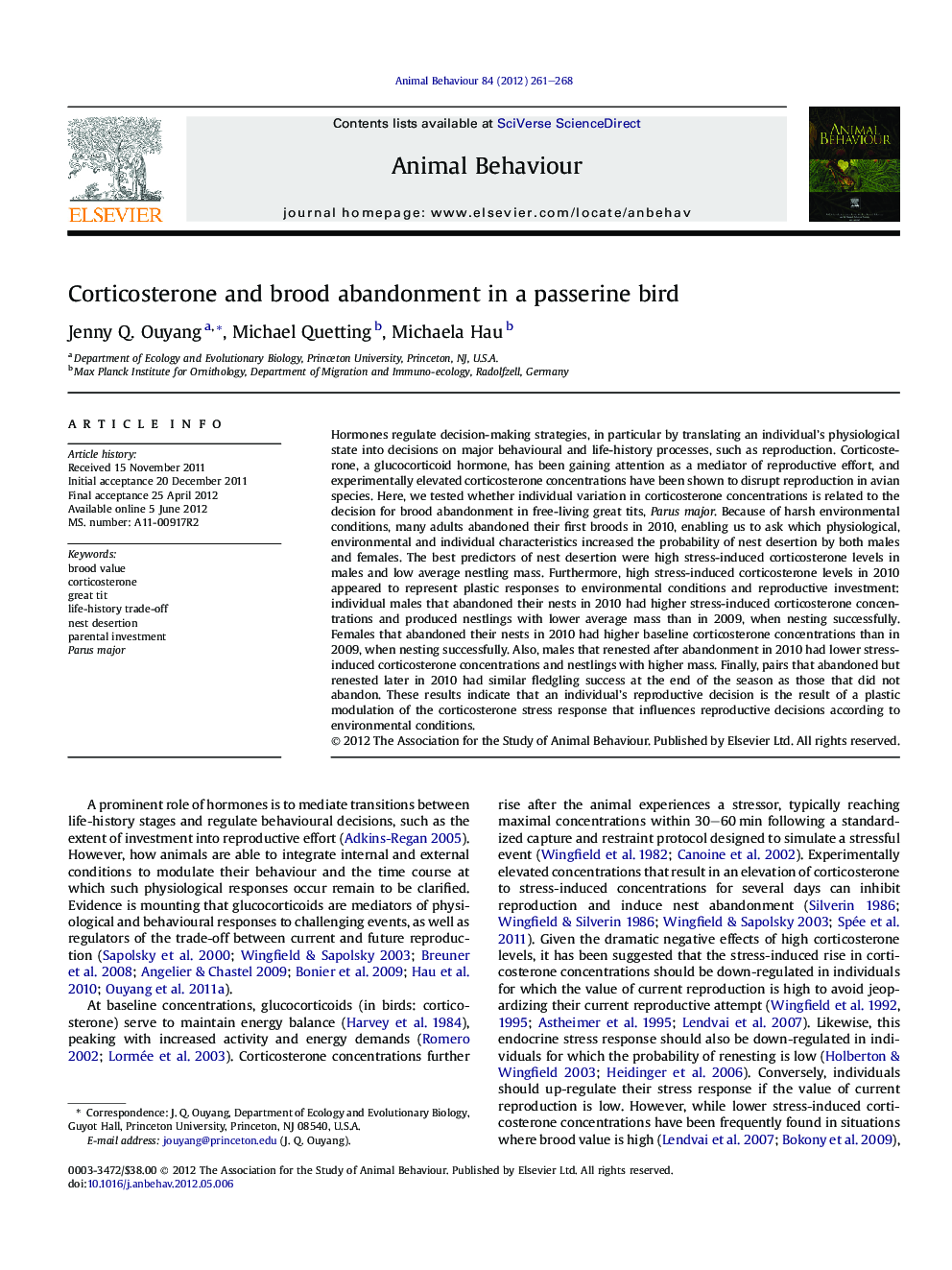| Article ID | Journal | Published Year | Pages | File Type |
|---|---|---|---|---|
| 2416699 | Animal Behaviour | 2012 | 8 Pages |
Hormones regulate decision-making strategies, in particular by translating an individual's physiological state into decisions on major behavioural and life-history processes, such as reproduction. Corticosterone, a glucocorticoid hormone, has been gaining attention as a mediator of reproductive effort, and experimentally elevated corticosterone concentrations have been shown to disrupt reproduction in avian species. Here, we tested whether individual variation in corticosterone concentrations is related to the decision for brood abandonment in free-living great tits, Parus major. Because of harsh environmental conditions, many adults abandoned their first broods in 2010, enabling us to ask which physiological, environmental and individual characteristics increased the probability of nest desertion by both males and females. The best predictors of nest desertion were high stress-induced corticosterone levels in males and low average nestling mass. Furthermore, high stress-induced corticosterone levels in 2010 appeared to represent plastic responses to environmental conditions and reproductive investment: individual males that abandoned their nests in 2010 had higher stress-induced corticosterone concentrations and produced nestlings with lower average mass than in 2009, when nesting successfully. Females that abandoned their nests in 2010 had higher baseline corticosterone concentrations than in 2009, when nesting successfully. Also, males that renested after abandonment in 2010 had lower stress-induced corticosterone concentrations and nestlings with higher mass. Finally, pairs that abandoned but renested later in 2010 had similar fledgling success at the end of the season as those that did not abandon. These results indicate that an individual's reproductive decision is the result of a plastic modulation of the corticosterone stress response that influences reproductive decisions according to environmental conditions.
► We tested whether individual variation in corticosterone is related to brood abandonment. ► High stress-induced corticosterone levels in males and low nestling mass predicted brood desertion. ► Low ambient temperatures predicted high baseline corticosterone levels. ► Males had lower stress-induced corticosterone levels when nesting successfully. ► Corticosterone responds to environmental conditions and mediates individual decisions.
